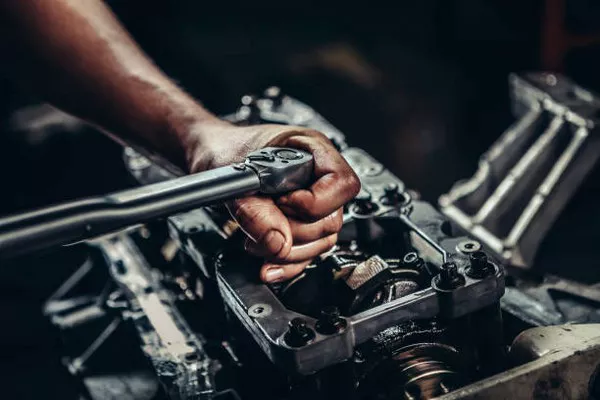When it comes to automotive maintenance, having the right tools on hand can make all the difference. One such tool that can prove invaluable for car owners is an air compressor. Whether you need to maintain proper tire pressure or power pneumatic tools for DIY projects, having an air compressor in your garage can be a game-changer. However, understanding the costs associated with purchasing an air compressor for your car is crucial before making the investment. In this article, we will delve into the factors that influence the cost of air compressors for cars, helping you make an informed decision.
Types of Air Compressors
Before diving into the cost details, it’s essential to understand the different types of air compressors available for cars:
Portable Air Compressors: These compact units are designed for convenience and are often used for inflating tires. They are highly portable and can be powered through a car’s 12-volt power outlet.
Pancake Compressors: Slightly larger than portable compressors, pancake compressors are still relatively compact and are known for their stability. They are typically used for inflating tires and operating small pneumatic tools.
Hot Dog Compressors: These are a bit larger and offer a higher capacity than pancake compressors. They are versatile and can handle tasks like tire inflation and light pneumatic tool usage.
Stationary Compressors: Stationary or vertical compressors are larger, more powerful units suitable for serious DIY enthusiasts and professionals. They can handle a wide range of tasks and often have a higher cubic feet per minute (CFM) rating.
Factors Affecting Air Compressor Costs
Several factors influence the cost of air compressors for cars. Understanding these factors will help you determine the right compressor for your needs and budget:
Type and Size: As mentioned earlier, the type of air compressor you choose will significantly impact the cost. Portable and pancake compressors are more affordable, while stationary compressors are pricier due to their increased capacity and power.
Power Source: The power source of the compressor can also affect the cost. Compressors that run on electricity typically cost less than those that run on gasoline or diesel. Battery-powered compressors also exist but may come at a premium.
Capacity: The capacity of an air compressor is measured in gallons for portable units and in gallons or liters for larger models. Higher capacity compressors can deliver more air pressure and volume, which can drive up the cost.
Performance: The performance of an air compressor is often measured in terms of CFM (cubic feet per minute) or SCFM (standard cubic feet per minute). Compressors with higher CFM ratings tend to be more expensive but can handle a wider range of tasks.
Brand and Quality: The brand and quality of the compressor can have a significant impact on its cost. Established and reputable brands may charge a premium for their products, but you can often expect higher reliability and durability.
Accessories and Features: Some air compressors come with additional accessories and features like built-in air pressure gauges, multiple hose connections, and automatic shut-off systems. These extras can drive up the price.
Cost Ranges for Air Compressors
Now that we’ve covered the factors that affect air compressor costs let’s explore the typical cost ranges for various types of air compressors:
Portable Air Compressors: Portable units, suitable for tire inflation and light-duty tasks, can range from $30 to $100. The price variation often depends on brand, capacity, and additional features.
Pancake Compressors: Pancake compressors, with their increased capacity and stability, usually range from $100 to $300. Higher-end models with more features may exceed this range.
Hot Dog Compressors: Hot dog compressors are slightly larger and more versatile, with prices ranging from $150 to $500. Models with higher capacity and additional features will be on the higher end.
Stationary Compressors: Stationary compressors, designed for professional use, can cost anywhere from $300 to $1,500 or more. The price varies significantly based on capacity, performance, and brand reputation.
It’s important to note that while these are typical price ranges, there are exceptions. Some premium brands may charge significantly more for their products, and you may find budget-friendly options that fall below these ranges.
Considerations When Purchasing an Air Compressor
When shopping for an air compressor for your car, keep the following considerations in mind:
Your Specific Needs: Evaluate your intended usage. Do you need an air compressor primarily for tire inflation, or do you plan to use it for more substantial tasks like operating pneumatic tools? Choose a compressor that aligns with your specific needs.
Available Space: Consider the available space in your garage or workspace. Stationary compressors are bulkier and require a dedicated space with proper ventilation and power supply.
Portability: If you need a compressor for on-the-go use, prioritize portability. Portable and pancake compressors are ideal for this purpose.
Noise Level: Air compressors can be noisy. If noise is a concern, look for models with lower decibel ratings or consider installing noise-reducing accessories.
Maintenance: All compressors require regular maintenance. Check the manufacturer’s guidelines for maintenance procedures and costs to ensure you’re comfortable with the long-term upkeep.
Warranty and Support: Research the warranty and customer support offered by the manufacturer. A reliable warranty can provide peace of mind in case of any issues.
Conclusion
Investing in an air compressor for your car is a practical decision that can enhance your automotive maintenance capabilities. However, understanding the factors that influence the cost of air compressors and considering your specific needs and budget are essential steps in making the right purchase. Whether you opt for a portable compressor for occasional tire inflation or a stationary unit for versatile use, the key is to find a compressor that suits your requirements and provides long-term value.

